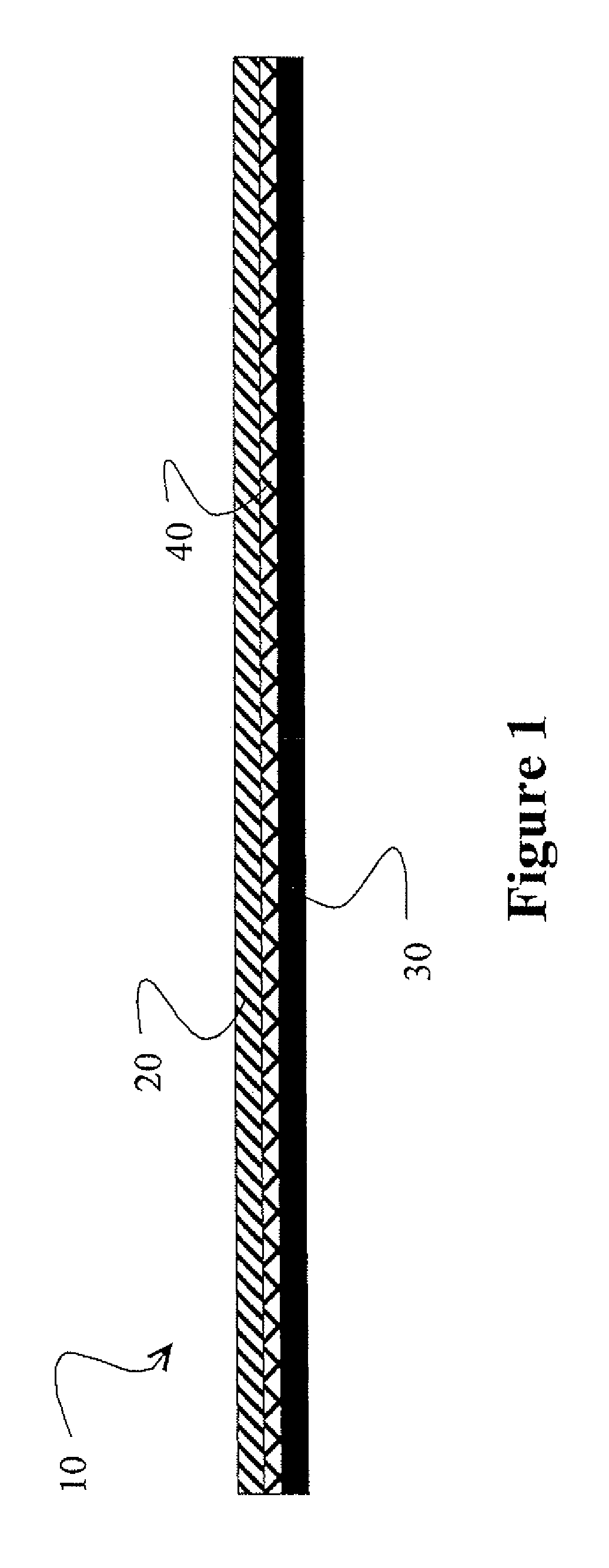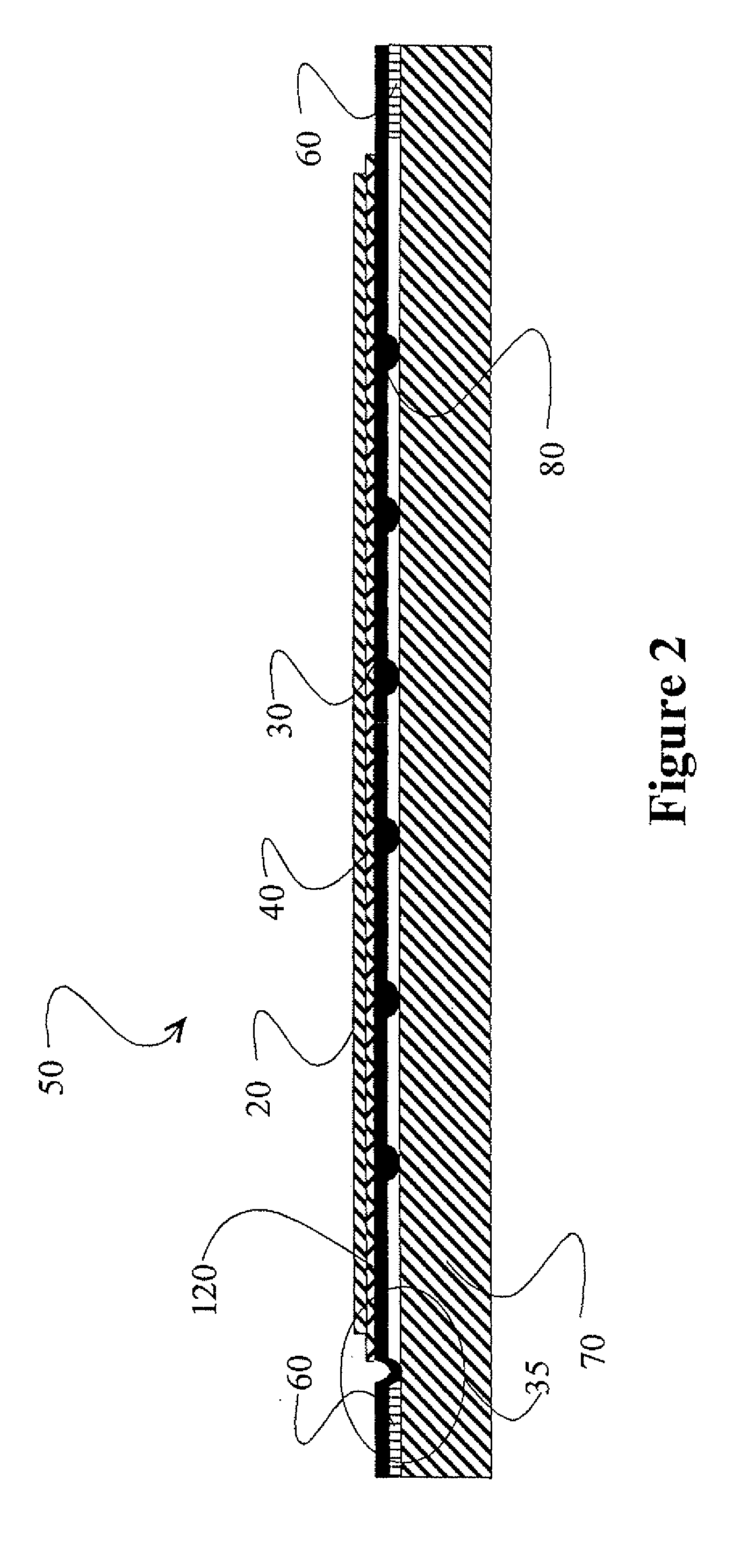Method of forming a touch screen laminate
a technology of resistive touch and laminate, applied in the direction of lamination, electrical equipment, applications, etc., can solve the problems of false touch sense, achieve the effect of resisting touchscreen technology, resisting scratching, cutting and burning, and being difficult to vandaliz
- Summary
- Abstract
- Description
- Claims
- Application Information
AI Technical Summary
Benefits of technology
Problems solved by technology
Method used
Image
Examples
Embodiment Construction
[0029]As discussed above, resistive touch screen technology would be the preferred technology for numerous applications, especially those in which the public needed to use touch screens. The robustness of this technology allows it to function regardless of dirt, dust, or electromagnetic signals. The screen can be touched by a bare hand, gloved hand, or stylus and still function. However, the main problem that needs to be overcome is the vulnerability of the soft upper touchscreen layer.
[0030]It has been found by the inventor that a thin glass layer possesses enough flexibility to allow it to be used for touch screen applications. Glass useful for this purpose includes Schott Borofloat 263™ or Corning 0211™ and is generally about 0.5 mm thick although greater or lesser thicknesses are possible as long as the glass behaves like a film. Further, by having an outer glass layer, the problems of a soft polymer outer layer are overcome. Glass is much harder, and thus not susceptible to bei...
PUM
| Property | Measurement | Unit |
|---|---|---|
| thick | aaaaa | aaaaa |
| thick | aaaaa | aaaaa |
| thickness | aaaaa | aaaaa |
Abstract
Description
Claims
Application Information
 Login to View More
Login to View More - R&D
- Intellectual Property
- Life Sciences
- Materials
- Tech Scout
- Unparalleled Data Quality
- Higher Quality Content
- 60% Fewer Hallucinations
Browse by: Latest US Patents, China's latest patents, Technical Efficacy Thesaurus, Application Domain, Technology Topic, Popular Technical Reports.
© 2025 PatSnap. All rights reserved.Legal|Privacy policy|Modern Slavery Act Transparency Statement|Sitemap|About US| Contact US: help@patsnap.com



